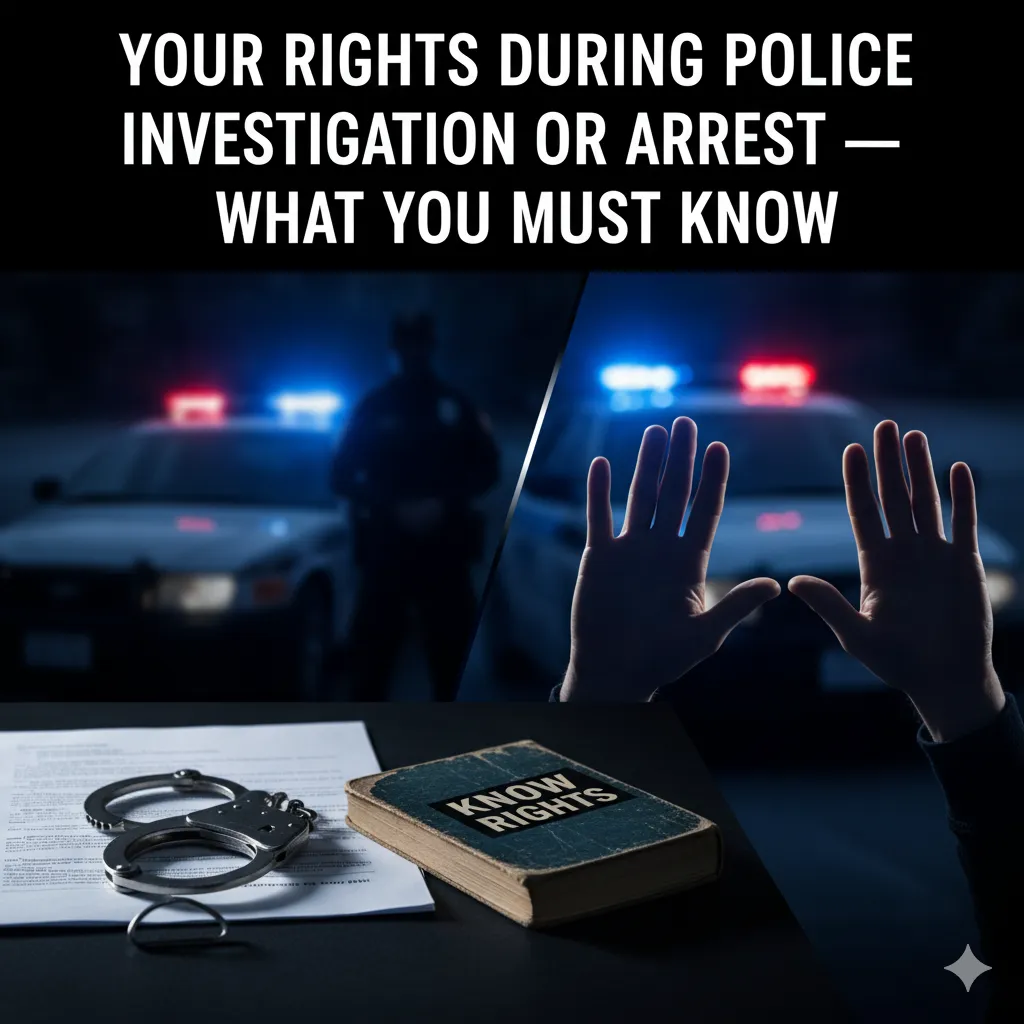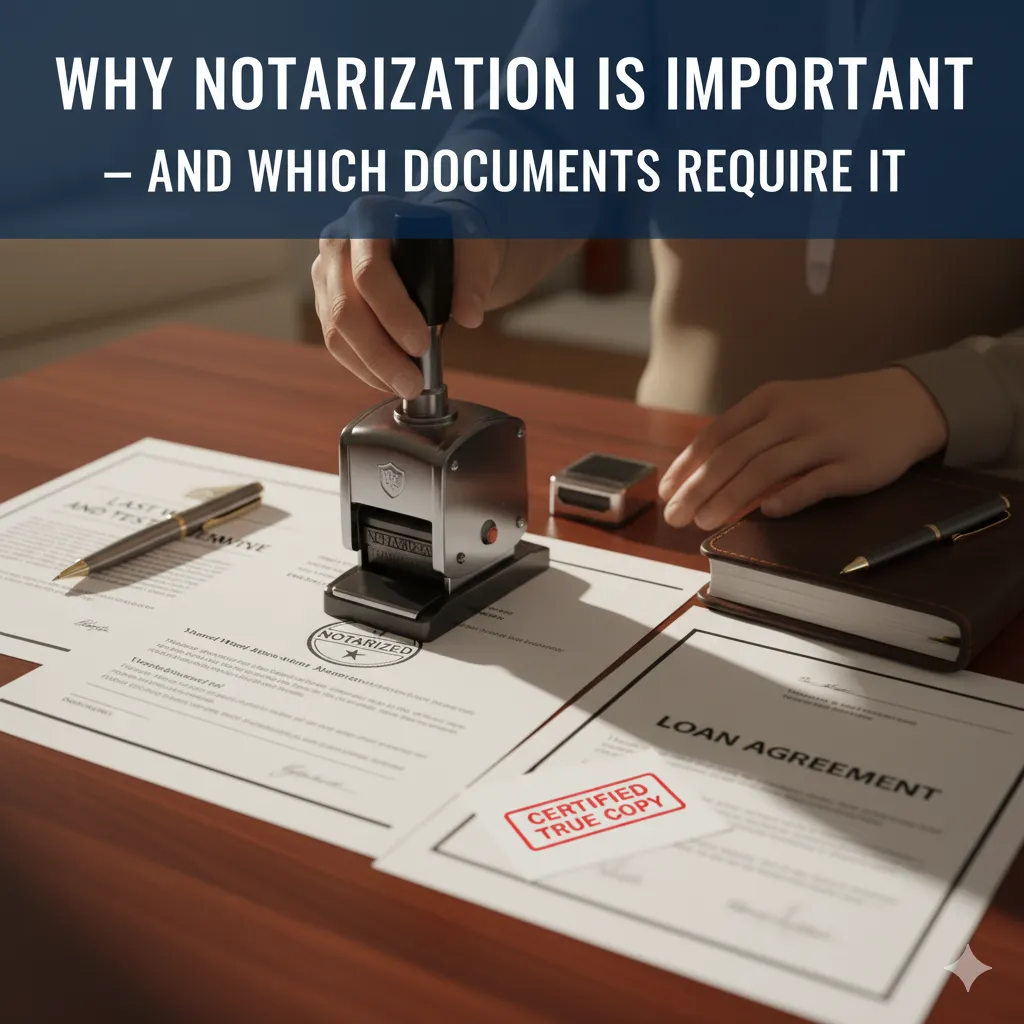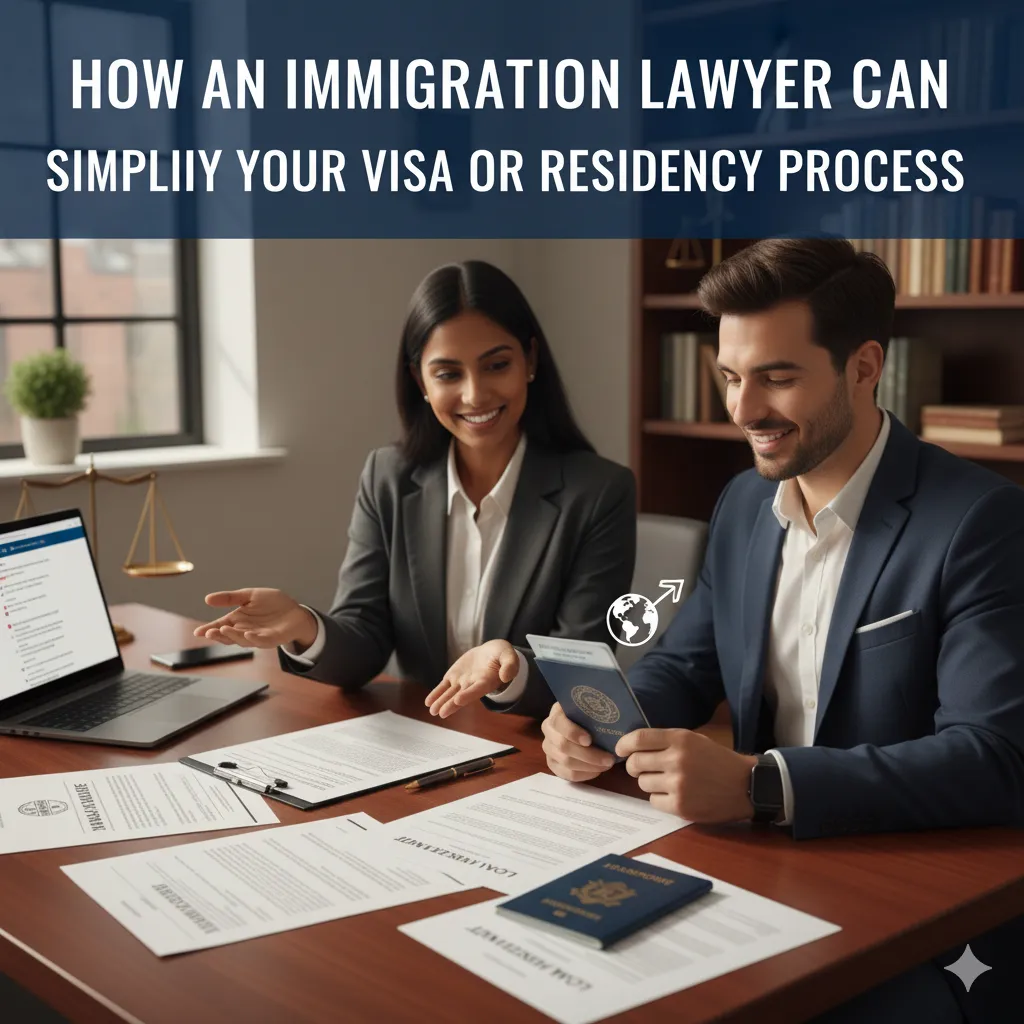Being questioned, detained, or arrested by the police can be intimidating — even for innocent people. In stressful moments like these, most individuals don’t know what to say, what not to say, or what rights protect them under the law.
Understanding your legal rights during a police investigation or arrest is crucial. It helps you cooperate lawfully without compromising your safety, dignity, or legal position.
This article explains, in simple terms, the key rights every person should know during police interactions — and what to do if those rights are violated.
You Have the Right to Know the Reason for Arrest
If the police arrest you, they must clearly inform you:
- The grounds of your arrest, and
- The specific offence you are accused of.
You cannot be arrested secretly or without being told why. This right ensures transparency and prevents arbitrary arrests.
Tip: Always ask calmly, “Am I being arrested? If yes, under which section or charge?” If the officer cannot provide a clear answer, you may be detained unlawfully.
You Have the Right to Remain Silent
One of the most important protections you have is the right to remain silent. You are not required to answer questions that may incriminate you.
- You can provide basic identification details (like your name and address).
- But you have the right not to answer questions about the alleged offence until your lawyer is present.
- Anything you say can be used as evidence against you in court.
Remember: Stay polite, but firm. You can say, “I wish to remain silent and speak with my lawyer first.”
You Have the Right to Legal Representation
Every person who is arrested has the constitutional right to consult a lawyer of their choice.
This means:
- You can call or have someone inform your lawyer immediately.
- You cannot be forced to answer police questions without legal counsel.
- If you cannot afford a lawyer, the court can appoint one for you (legal aid).
Why this matters:
A lawyer ensures your statements are recorded properly, your rights are respected, and that no coercion or unfair pressure is used during questioning.
You Have the Right to Be Presented Before a Magistrate Within 24 Hours
After arrest, the police cannot detain you for more than 24 hours without presenting you before a magistrate.
- This 24-hour period includes travel time from the place of arrest to the court.
- The magistrate then decides whether to grant bail or authorize further custody.
This right protects you from illegal detention or wrongful confinement.
You Cannot Be Physically Harmed or Tortured
During arrest or interrogation, you must be treated with dignity and respect.
The police cannot:
- Use physical force or violence.
- Threaten, intimidate, or torture you to extract information.
- Deny you food, water, rest, or medical help.
If such actions occur, you can:
- Inform your lawyer immediately.
- Inform your lawyer immediately.
- Ask for a medical examination to record injuries.
- File a complaint with the magistrate or human rights commission.
Remember: No confession made under physical or mental pressure is valid in court.
You Have the Right to Inform a Family Member or Friend
The police must allow you to inform a relative, friend, or guardian about your arrest and where you are being held.
If you are a foreign national, you have the right to contact your embassy or consulate.
This ensures that someone you trust knows your situation and can arrange legal help.
You Have the Right to Be Searched Respectfully
During an arrest, the police may search you for weapons or illegal items.
However, this must be done according to legal procedure:
- A female must be searched only by a female officer.
- The search must be done decently, without unnecessary exposure or humiliation.
- You have the right to request that the search be conducted in front of independent witnesses.
You Have the Right to Bail (in Bailable Offences)
If you are arrested for a bailable offence, you are entitled to bail as a matter of right. In non-bailable offences, you can still apply for bail through your lawyer, and the court will decide based on the case circumstances.
Why legal advice matters here:
A lawyer can file for anticipatory bail (before arrest) or regular bail (after arrest) and explain the best legal route to secure your release quickly.
You Have the Right to Receive a Copy of the FIR
If a First Information Report (FIR) is registered against you, you have the right to obtain a copy.
This allows you to know:
- The exact allegations made, and
- The legal sections applied against you.
Your lawyer will use this FIR to build your defence strategy and check for procedural errors.
Rights of Women and Minors During Arrest
For Women:
- Women cannot be arrested after sunset and before sunrise, except in exceptional circumstances with written permission from a magistrate.
- A female police officer must handle the arrest and any physical search.
- Women have the right to be treated with decency and respect throughout the process.
For Minors:
- Children under 18 cannot be treated as adult offenders.
- The police must inform their parents or guardians immediately.
- They are to be presented before the Juvenile Justice Board, not a regular court.
These safeguards ensure humane and lawful treatment of vulnerable individuals.
You Have the Right to Medical Assistance
If you are injured or unwell at the time of arrest or during custody, you have the right to medical attention.
Police must:
- Provide prompt medical examination by a registered doctor.
- Record the medical report properly, including any visible injuries.
- Allow your lawyer or family to obtain a copy of the medical report.
This protects you against false allegations and ensures your safety in custody.
You Have the Right Against Self-Incrimination
Under the law, no person can be forced to confess guilt or provide evidence against themselves.
This means:
- You cannot be compelled to sign any statement or confession under pressure.
- You cannot be forced to take lie-detector or narco tests without consent.
- Statements made under coercion are inadmissible in court.
Tip: Never sign any document unless your lawyer has reviewed it.
What You Should Do If Your Rights Are Violated
Despite legal safeguards, rights violations do occur. If you face harassment, illegal detention, or torture, you can take the following steps:
- Contact your lawyer immediately.
They can file an urgent petition before a magistrate or high court. - Inform a trusted person (family or friend) about your location.
- File a written complaint with the magistrate or police superintendent.
- Request a medical examination to record any injuries.
- Seek compensation or legal action through the court for wrongful arrest or abuse.
Note: Courts take such violations seriously and can order inquiries or disciplinary action against offending officers.
What a Criminal Defence Lawyer Does for You
A defence lawyer ensures that every step of the investigation or arrest process complies with the law.
They help by:
- Being present during police interrogation.
- Ensuring statements are properly recorded.
- Applying for bail quickly.
- Preparing your defence strategy based on the FIR and evidence.
- Challenging illegal arrests or procedural lapses in court.
Having a lawyer by your side changes everything — it balances the power between the citizen and the state.
Key Takeaways (Quick Summary)






